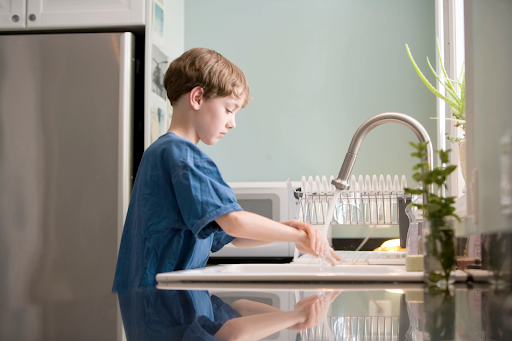A family with an alcohol problem is the one in which at least one person drinks in a way that harms others. A person who drinks destructively causes life, emotional and financial problems in the people around them. The whole family struggles with the alcohol problem in the broadest sense.
We can say that this problem does not concern only those who drink because no one lives in a social vacuum. This problem concerns all people who are closely related to an alcoholic: those who love them and care about them, who somehow depend on them, and live together.
It is precisely because the disease covers the whole family, and those people in it who do not drink themselves – it is possible to start work on solving the problem from non-addicted family members. It is worth working with the family, because this is a system where alcohol is an important factor. Changing the system can change a lot in the action of this factor, along with finding a nice family addiction treatment option in rehab for families.
A family is a social group whose members are interdependent in solving their emotional, spiritual and social needs. This way of looking at things means that many problems arise in family life.
Families do not exist without problems. In different phases of an individual’s life and the life of a family and the life of a family, contradictions regarding the goal and the means of its achievement take on different dimensions, sometimes even dramatic ones. Each relative understands this goal and means of action to achieve it in their own way – there are no families without conflicts.
It is important to resolve conflicts constructively, and to resolve contradictions whenever possible. A family with an alcohol problem has specific difficulties, but it is important to emphasize that they are neither better nor worse.
One of the famous specialists in family therapy, Virginia Satir, emphasizes four features of a psychologically healthy family:
- Positive self-awareness and autonomy of individual family members.
- Open and effective communication.
- Reciprocity.
- Communication with the outside world.
Do you wonder what these traits might look like in a family with an alcohol problem?
Let’s take a closer look at each of them.
Positive self-awareness means, in other words, the perception of oneself as it is, and the general feeling that “I’m fine”, even if some of my actions deserve criticism. I can make mistakes, in search of better ways of life. I have certain flaws and limitations, but I have come to terms with them. I perceive myself with limitations and with good, strong sides. I have the same value as other people, and my needs and desires are no better and no worse than the aspirations and needs of others. I perceive myself as a man’s woman and allow myself to draw strength and support from the fact that I have a certain gender. I love myself and I deserve love. I have the right to care for myself when I’m not feeling well and give myself special attention when needed.
It is not easy to find self-respect and positive self-awareness in a family with an alcohol problem. Rather, on the contrary, everyone has claims against themselves and each other. Both alcoholics and partners-relatives, and even children who are growing up, are bound by hurt and guilt, resentment, aggression and a sense of the absence of any order.
In a family with an alcohol problem, the psychological boundaries of individuals cross each other, they are chaotic and blurred. Instead of responsibility or refusal of it, or over responsibility, which means treating another person, an adult, as a child or a disabled person. People mutually violate each other’s psychological boundaries, doing something “for someone”, or allowing someone else to think, plan and be responsible for them. Open and successful communication is such communication in which family members can calmly talk about all important matters in their lives. This means that they know how to both talk about it and listen.
Taboo is not only the fact of alcohol abuse, but also the feelings associated with it. People are afraid that an alcoholic will come drunk, but they don’t say it, they get angry and deny it when asked about it. Shame prevents us from talking about what happened yesterday and who felt what about it. Of course, there are quarrels. But shouting, nicknames and reproaches are not a conversation, although they supposedly relieve internal tension. An attack begets a counterattack. And a sincere and frank conversation with an alcoholic is impossible – everyone who lives next to an addict knows this.
What can be done?
- Start learning about alcoholism and the effects of codependency on the drinker’s family members.
- Talk to the professionals at family therapy sessions. Try to overcome yourself in this and believe that this step is necessary for the health of the whole family. Find a family therapy group where you will find support. You can come there and listen without saying anything about yourself. Information about such groups can be found in notary consultations or by calling the hotline.
- When you can, start talking about addiction in your family with your children. This topic should be mastered step by step. Do not forget that the children have already learned the view that it is impossible to talk about it.
- Begin to outline the boundaries of your territory and say “no”. If necessary, start resolutely and consistently protecting yourself and your children. Reconsider, for example, your views on whether sexual cohabitation is a marital obligation regardless of emotional means and desire or not.
- Develop positive self-awareness, take care of your rights, their expression and protection. You have no less weight and value than other people. You deserve attention and love.
- Let the alcoholic fully experience the consequences of alcohol abuse. Don’t cure his hangover, don’t wall him off, don’t arrange sick days for him, don’t pretend that everything is fine.
























